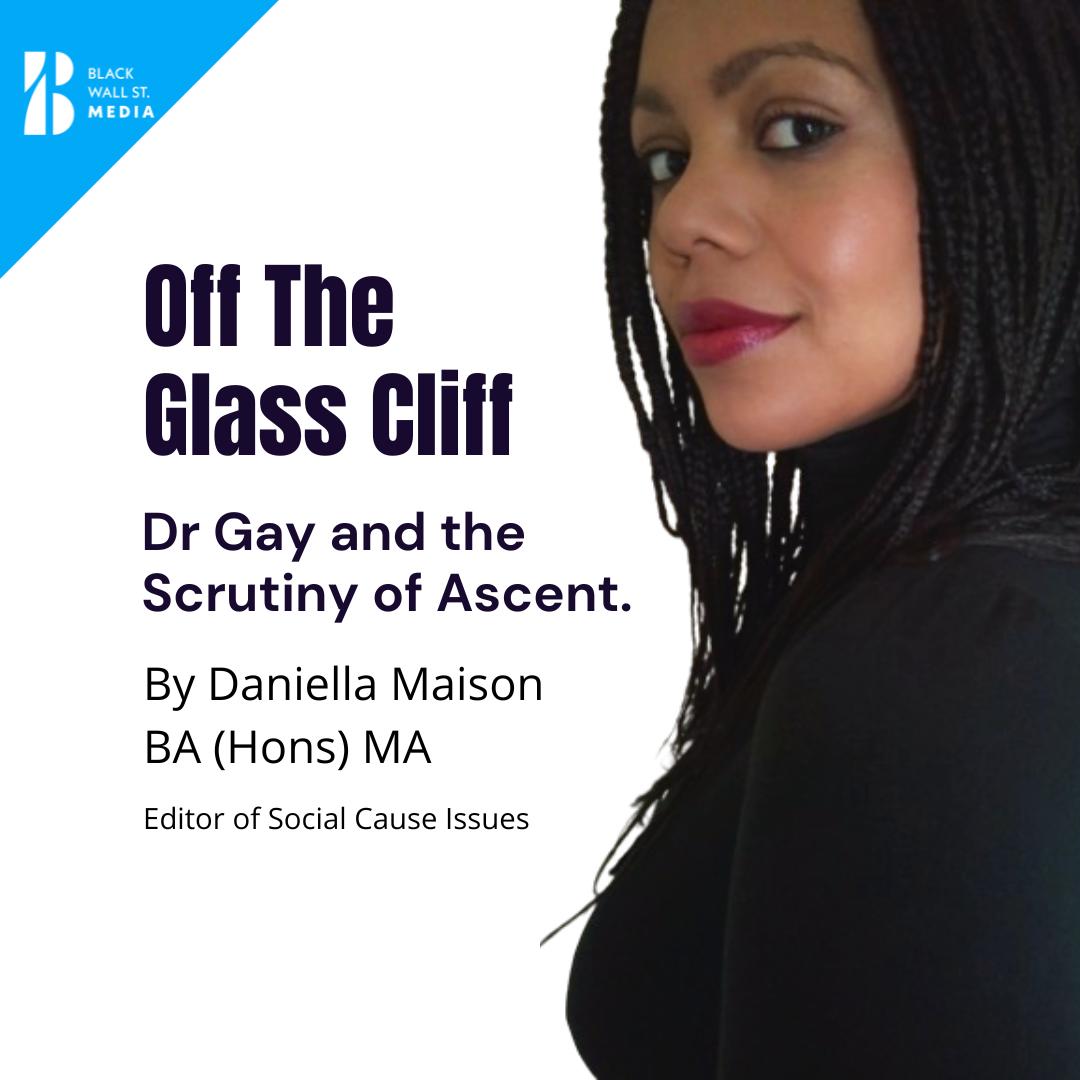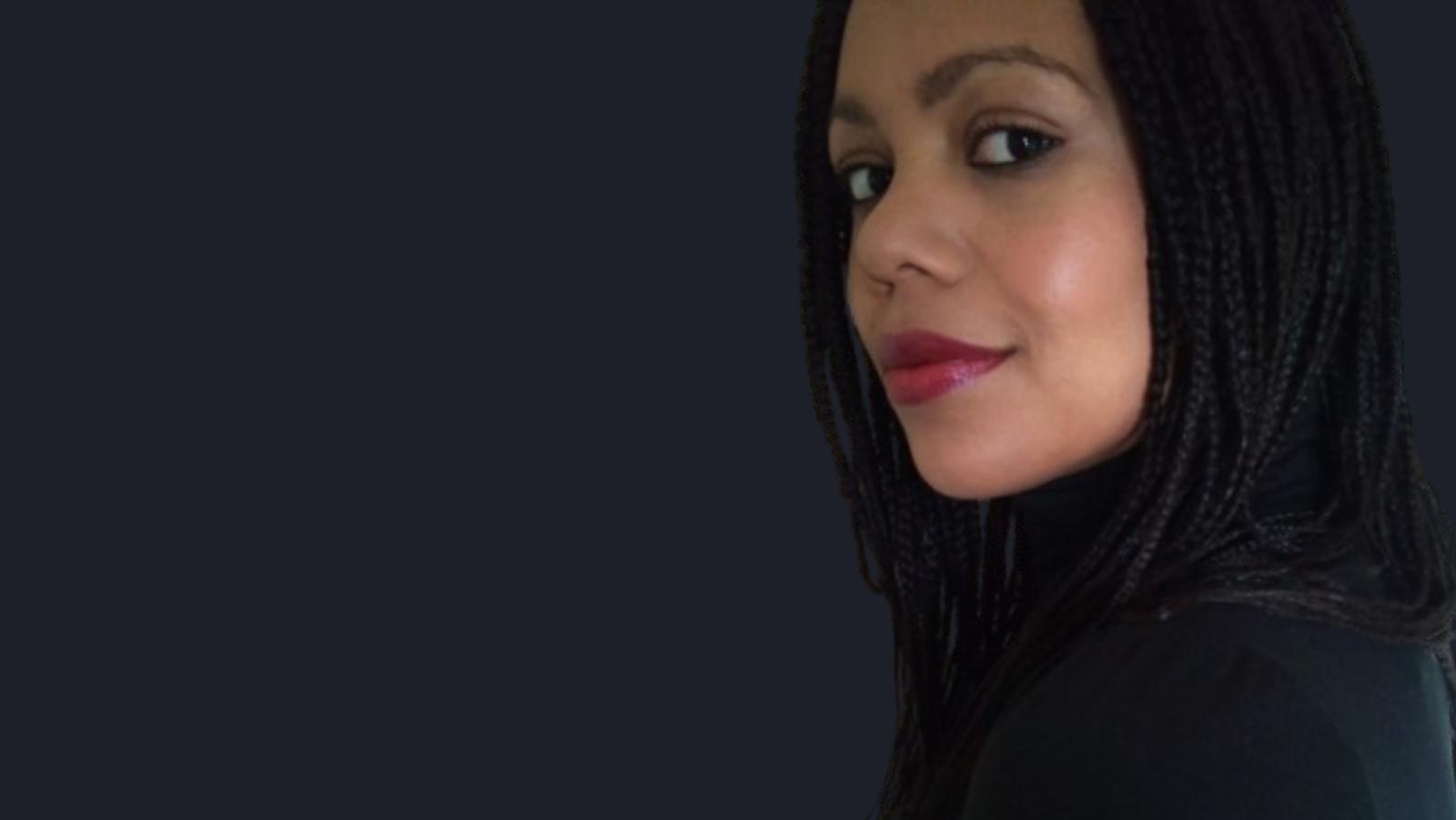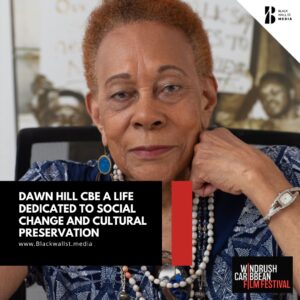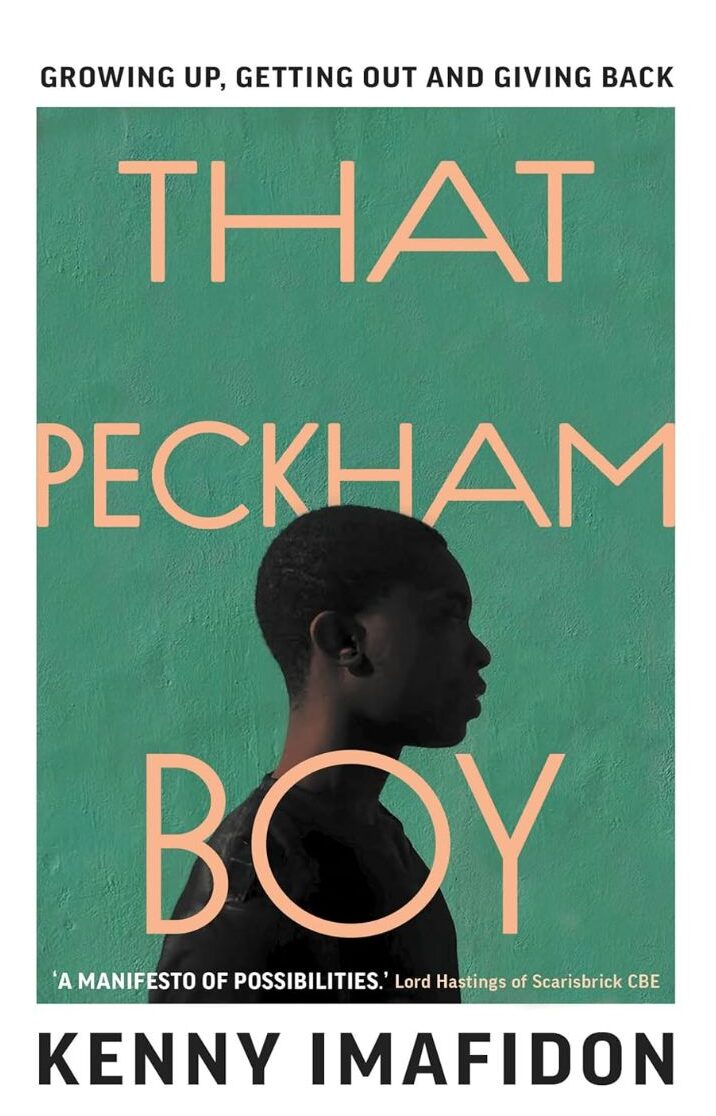OPINION
Off The Glass Cliff: Dr Gay and the Scrutiny of Ascent.
“In this deeply personal journey, Daniella reflects on her challenging experiences, starting with the tragic loss of her sister and the hostile environment at her grammar school.”
Daniella Maison BA (Hons) MAEDITOR OF SOCIAL CAUSE ISSUES

When I was 16, my five year old sister died suddenly of asymptomatic meningococcal septicaemia. It took me over a decade to be able to say that sentence without falling apart.
There is little comfort to be found when a child dies. But as a bereaved child, the care and support you receive in the aftermath is a major component of healing. The grammar school I was attending at the time of this unthinkable tragedy was cold enough to freeze the proverbials off a brass monkey.
I was in the second year of my studies at the Royal Latin Grammar School and I’d felt like an imposter from the very first day.
I had passed my GCSE’s with flying colours except for Maths. I was devastated, because I knew that without a C grade, I would not be able to get in to the school that my friends were going to and at 16, that felt like the end of the world.
Never one to be defeated, my father had buoyantly jumped in his car and yelled enthusiastically, ‘You are going to that school. Don’t worry!’
Before driving there and convincing the heads of year to let me in on the condition that I would re-sit my Maths GCSE alongside my A’Levels.
My father can sell ice to the Eskimos, and so I wasn’t entirely surprised when he arrived home and told me that I had a placement there.
If I’d had to work doubly hard before, I knew that was all a cake walk compared to what I’d have to do to be deemed worthy of this. I knew I was one of only three black students.
What I didn’t yet know was that despite my attempts to ‘blend in’ and work hard, that I’d be treated with continuous suspicion, that I’d be frequently disciplined for things that my white peers weren’t and that when my sister died halfway through my studies, they were just warming up.
The events that unfolded on the Thursday morning that my sister died are for another episode (it began with the headteacher uttering words ‘Daniella, someone in your family has died, do you know who it might be?’
It went downhill from there). What I will say, is that in the weeks after her death, I was desolate. My family was reeling.
As the eldest child of four, I have always taken my self-appointed role as protector very seriously and so I was intensely guilt-ridden. My home life was in darkness, the gravity of which can only be understood by a child who has lost a sibling. When I arrived back after my sister’s funeral, I was offered no pastoral support. Instead, I was gaslit.
My Geography file was thrown across the room because it was missing notes. I was disciplined for being absent.
One afternoon, during a study period I withdrew to a quiet space to breathe.
The head of year, walked in and reminded me icily that one of my classmates had lost her mother a few weeks prior (I remembered, afterall, we’d had a minutes silence for her in assembly), and that I should try to imagine what she was going through. Her finale was, ‘Don’t think you’ll be treated any differently because your sister is dead’.
This is a time in my life that I rarely revisit. From time to time my mother and I mention the netherworld of those days, and the battle she so valiantly tried to wage whilst in an unimaginably broken-hearted state.
We laugh at the day I graduated from university and my father drove to the school with a bottle of champagne and a framed copy of my BA certificate. My bold, black, brilliant father was not going to miss the opportunity to show them what the girl they told wouldn’t achieve a thing, had achieved.
Then, in 2024, two things happened. My book was published. If like me, you have ever been told that you’ll never achieve your dreams, the achievement of said dreams comes with extra bubbles.
The type that shoot up your nostrils so fast they give you brain freeze. Secondly, my mother handed me a box of old school stuff and when I got them home, my A’Level school report fell out. Written just months after the death of my sister, it reads:
‘You have clearly gone off the boil this term. Urgent action is required over the coming months. I strongly suggest you use the library.’
Off. The. Boil.
To me, it was a miracle that I’d gotten up everyday and gone to school, much less studied and sat exams.
Looking back now as a woman in my 40’s it’s hard for me to fathom that a teacher sat down to write that in my report knowing that I had lost my sister.
Having seen the despondent look that had taken up residence in my young eyes. The pain I couldn’t hide.
The same woman who had quipped ‘well at least you don’t have to go on that residential trip you’ve been wanting to get out of’ (less than five minutes after I’d been – finally – informed of my sister’s death) before walking past me and hugging my best friend instead. Apparently, she ‘looked more upset.’
The Dr Claudine Gay debacle is a grim reminder of the contradictory standards that are at play.
The race-driven Salem-witch-trial-style roasting (which they called a congressional hearing) against Dr Gay has brought to the fore the intense standard that Black women are held to.
Climbing the ladder doesn’t afford us more safety. It makes us more subject to scrutiny. I’d wager that If Dr Gay had been a White Male President, she would not have resigned and she’d have been afforded more impunity.
Donald trump became President of an entire country despite dishing out advice to ‘grab p*****s’. In fact, Justice Neil Gorsuch faced accusations of plagiarism that far exceeded those against Dr. Gay. He was awarded a lifetime appointment to the U.S. Supreme Court.
Now, news has broken that Dr. Antoinette “Bonnie” Candia-Bailey sadly passed away this week on January 8th.
Family sources have officially confirmed Dr. Bailey died by suicide due to distress from “bullying and severe mistreatment” in her role as VP of Student Affairs at Lincoln University Missouri.
I am a black woman
the music of my song
some sweet arpeggio of tears
is written in a minor key
and I
can be heard humming in the night
Can be heard
humming
in the night.
Mari Evans
Discussions have been rife about the additional scrutiny and lack of compassion and support that women of colour and in, particular Black women, face when we ascend, or attempt to ascend.
We consistently face an amplified and specific set of intersectional hurdles as we climb, all the while battling with isolation, stress, and depression. Guess what? It starts in school.
We contend with teachers who fail to see our ability, read our body language and look at us with suspicion. We grapple haplessly with a phenomenon known as “stereotype threat,” wherein there is an apprehension of validating negative stereotypes linked to our social identities.
I know now that It didn’t matter how well behaved I’d always been, how much of a joy my parents told me I was, I was a threat to this particular grammar schools position in the league table if they didn’t keep their feet on my neck. Our lack of oxygen matters not a jot.
I wonder, how many other school reports there are like mine. Of course, in the 24 years that have passed since I passed my A’Levels, I’ve told myself it was character building. It made me thick skinned, case-hardened, armour plated.
That I defied their odds and ascended despite and in spite of their agenda. Of course, I’ve consistently over achieved in every setting since and from time to time I may have even told them to ‘stick that in your pipe and smoke it’ under my breath.
And Still I Rise I tell myself. And in my newly published book, I thanked the teachers who told me I would never achieve a thing, and the teachers who told me I would.
”What else, after all, can we do?
Daniella Maison BA (Hons) MAEDITOR OF SOCIAL CAUSE ISSUES













